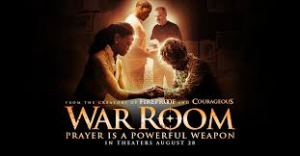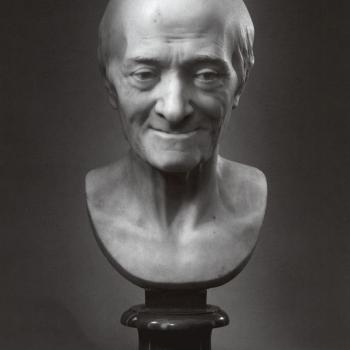Marriage experts (if there are such things) often suggest that all married couples, even those who have been married for so long that they can’t remember when they weren’t married, should regularly schedule times just for themselves, times when they deliberately leave their children, animals, jobs, worries, home and everything else behind for some “us” time.  This is often called “date night,” which is an attractive title only for those who remember their dating years fondly—I’m not one of them. But I agree with the idea behind the concept. Jeanne’s and my “date night” is pretty simple and predictable—a movie preceded by or followed by a drink and something to eat. Our latest such foray involved a fifteen mile ride to Massachusetts (one is never farther than a half hour from another state anywhere in Rhode Island), a movie, then a drink and light dinner at Not Your Average Joe’s (our go-to place to eat). This should probably be called a “date afternoon,” since we almost always go to the 4:00ish showing of whatever we are seeing in order to pay a couple of bucks less. Yes, we are both cheap dates.
This is often called “date night,” which is an attractive title only for those who remember their dating years fondly—I’m not one of them. But I agree with the idea behind the concept. Jeanne’s and my “date night” is pretty simple and predictable—a movie preceded by or followed by a drink and something to eat. Our latest such foray involved a fifteen mile ride to Massachusetts (one is never farther than a half hour from another state anywhere in Rhode Island), a movie, then a drink and light dinner at Not Your Average Joe’s (our go-to place to eat). This should probably be called a “date afternoon,” since we almost always go to the 4:00ish showing of whatever we are seeing in order to pay a couple of bucks less. Yes, we are both cheap dates.
As we left the theatre on our most recent date afternoon, I said “I liked that.” And I did—I’ve often said that one way to tell whether a movie was worth the price of admission is to see whether the two of us talk about it much afterward. At the bar in NYAJ’s fifteen minutes or so later, as I drank an  Allagash Black Porter and Jeanne consumed a Diet Pepsi with a vodka chaser (there’s no accounting for taste), she returned my attention to movie by saying “I’m really surprised you liked that movie. I didn’t think you would.” And she was right—it was exactly the sort of film that I would have hated—probably would have not wanted to see at all—not very long ago. It would have pushed about a dozen different buttons that I didn’t want pushed and resurrected a number of memories that are best left in the tomb. Maybe I’ve changed just a bit.
Allagash Black Porter and Jeanne consumed a Diet Pepsi with a vodka chaser (there’s no accounting for taste), she returned my attention to movie by saying “I’m really surprised you liked that movie. I didn’t think you would.” And she was right—it was exactly the sort of film that I would have hated—probably would have not wanted to see at all—not very long ago. It would have pushed about a dozen different buttons that I didn’t want pushed and resurrected a number of memories that are best left in the tomb. Maybe I’ve changed just a bit.
The movie was “War Room.” The first red flag is that this is a “Christian” movie—made by Christians, about Christians, with Christian actors, message, themes, activities, attitudes and food.  Those who have a similar upbringing and history to mine should already be cringing. “Christian movies” have during my lifetime earned the reputation of being propagandistic, jingoistic, in your face, smug and judgmental. Join that with abominable cinematography, ludicrous story lines, and atrocious acting and you have a product worthy of being shown only in church basements on Sunday evenings and viewed only by those who have been bathing in fundamentalist Kool Aid their whole lives. But over the past few years, movies with a Christian orientation have begun to press their way into the movie mainstream and have been popping up at neighborhood multiplexes, not through godless Hollywood but independent films constructed and packaged by people who actually know how to make and promote a real movie for real people, populated with believable characters played by talented actors.
Those who have a similar upbringing and history to mine should already be cringing. “Christian movies” have during my lifetime earned the reputation of being propagandistic, jingoistic, in your face, smug and judgmental. Join that with abominable cinematography, ludicrous story lines, and atrocious acting and you have a product worthy of being shown only in church basements on Sunday evenings and viewed only by those who have been bathing in fundamentalist Kool Aid their whole lives. But over the past few years, movies with a Christian orientation have begun to press their way into the movie mainstream and have been popping up at neighborhood multiplexes, not through godless Hollywood but independent films constructed and packaged by people who actually know how to make and promote a real movie for real people, populated with believable characters played by talented actors.
“War Room” is a case in point. The movie is well put together, all of the actors do a more than satisfactory job, and toward the end there is a ten minute or so scene of a jumping rope championship that has to be seen to be believed. Really. The story is believable as are the performances. It is yet another proof that the rank and offensively amateur nature of the Christian movies of my earlier years is a thing of the past.  So why was Jeanne surprised that I enjoyed it? Because it is a Christian movie. And all of the improved production value and acting in the world can’t disguise it. No one is trying to hide its message—it is hard core and in your face evangelical Christian from opening to closing credits.
So why was Jeanne surprised that I enjoyed it? Because it is a Christian movie. And all of the improved production value and acting in the world can’t disguise it. No one is trying to hide its message—it is hard core and in your face evangelical Christian from opening to closing credits.
I’m not going to spoil the movie for you, since you really should see it, but its plot is pretty predictable for this sort of film. A couple who has been married for several years has grown apart; their primary formx of communication are fighting and silence. The husband is obsessed with his job (pharmaceutical sales) and being a success, highly motivated and colossally impressed with himself. He is married to a successful business woman (real estate); between their jobs and their arguing, they have little time remaining for their only child, their ten year old daughter. Into their stressful world and deteriorating relationship comes a person of faith— the sort of person we called a “prayer warrior” when I was growing up—who has been around the block a number of times. This person’s dynamic relationship with God has an accumulating effect on the other main characters who, first the wife then the husband, rediscover the Jesus and God they supposedly believe in but have been ignoring for a long time. By the end of the movie the couple’s relationship is restored, their attention to their daughter has returned, and both are ready to live out a renewed commitment to Christ.
the sort of person we called a “prayer warrior” when I was growing up—who has been around the block a number of times. This person’s dynamic relationship with God has an accumulating effect on the other main characters who, first the wife then the husband, rediscover the Jesus and God they supposedly believe in but have been ignoring for a long time. By the end of the movie the couple’s relationship is restored, their attention to their daughter has returned, and both are ready to live out a renewed commitment to Christ.
And Jeanne was surprised that I liked the movie. “Why didn’t you think I would like it?” I asked, and her answer made perfect sense. “Because it is fundamentalist and evangelical Christianity,” reminding me that these are both the things that I was raised in and have spent most of my adult life trying to get over. And she’s right. The faith on display in “War Room” is no longer mine—it did sufficient damage to me that I tried in my twenties to leave Christianity entirely. So why did I enjoy the movie?  Because there is not an ounce of judgment in it. In other words, while is evangelical it is definitely not fundamentalist. The story is about people struggling with their lives and looking for a lifeline, not about the destiny of those who do not share the lifeline with them once they find it. After several weeks of a Kentucky county clerk refusing to obey the law and expressing judgment concerning those who do not agree with her, all in the name of her Christian faith,
Because there is not an ounce of judgment in it. In other words, while is evangelical it is definitely not fundamentalist. The story is about people struggling with their lives and looking for a lifeline, not about the destiny of those who do not share the lifeline with them once they find it. After several weeks of a Kentucky county clerk refusing to obey the law and expressing judgment concerning those who do not agree with her, all in the name of her Christian faith,  it was nice to see faith portrayed as a source of inspiration and stimulant for living one’s life in a difficult world rather than proscribing what’s best for everyone else.
it was nice to see faith portrayed as a source of inspiration and stimulant for living one’s life in a difficult world rather than proscribing what’s best for everyone else.
My response to Jeanne’s answer to my question, though, was along slightly different lines. I have frequently said over the past few years, as I live out unexpected but entirely welcome changes in my own perspective and life, that the best proof of the importance of faith is a changed life. No amount of doctrine, dogma, rules, Scripture, or proselytizing can beat the testimony of the blind man in the gospel: “I was blind, but now I see.”  And that’s what this movie was about—changed lives. This is who I was, this is who I am, and this is who I hope to be. The method and manner of the changes portrayed is quite different than what I have experienced, but change for the better is a great thing no matter the process. As a famous Argentinian living in Rome who will be visiting the U.S. soon said recently, “who am I to judge?”
And that’s what this movie was about—changed lives. This is who I was, this is who I am, and this is who I hope to be. The method and manner of the changes portrayed is quite different than what I have experienced, but change for the better is a great thing no matter the process. As a famous Argentinian living in Rome who will be visiting the U.S. soon said recently, “who am I to judge?”
















